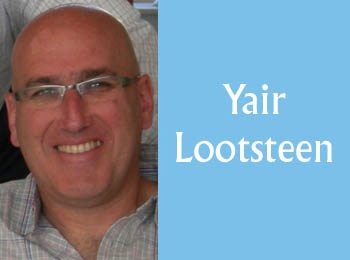We Israelis too often judge our fellow countrymen superficially – by the way they dress, their accents, their kippot, their complexions. I, too, suffer from this malady and recently had a refreshing opportunity to revisit some of my own preconceived notions.
It’s been boiling this summer in Israel. In Jerusalem, we endured 10 days in mid-July when the mercury reached the upper 30s Celsius, peaking at 41 for two blistering days.
Being the Jerusalemite that I am, over the years, I’ve been adamant about not needing air conditioning. While it gets hot, sometimes very hot, we live in the arid Judean Hills, well away from the atrocious humidity of the coastal plain. And come sundown, temperatures drop, and we enjoy cool evening breezes. In short, the heat has been bearable.
So I don’t quite know what got into me. Maybe it’s global warming and the undeniable fact that Jerusalem is no longer immune to humidity, or perhaps I’m getting a bit older (just a bit, mind you) and want more creature comforts, or possibly it has something to do with living on the top floor of an apartment building and suffering from the sun’s inexorable seasonal onslaught upon our roof. Whatever the reason, late this spring, just as prices jumped exponentially because of the weather, my wife and I finally surrendered to the elements and ordered air conditioning for our home, albeit energy sufficient and sufficiently green.
Miraculously, just a few days before that horrible heat wave, three skillful technicians descended upon our home. And while in the six hours they spent with us, they left a much-larger-than-expected mark on some of the walls and ceilings, with concrete and dust flying in all directions, at the end of the day, we could feel the fruits of their labour – a wondrous stream of arid 25-degree air flowing into our rooms.
But spending that half-day with adroit professionals gave me something else that I didn’t pay for.
Uncharacteristically, the technicians were early. The first one I met was Noam, a black-kippah-clad man lying on the grass at the entrance to our building with crates all around him, listening to a Talmud class on his iPhone. He was soon joined by Yossi and Yussuf.
They started working – shlepping, drilling, climbing, measuring, connecting and more. Labouring in the heat, it was clear this wasn’t their first time working together.
Turns out it was the 17th day of the Hebrew month of Tammuz, a fast day commemorating the breach of the walls of Jerusalem before the destruction of the Second Temple and Noam, a 28-year-old modern haredi father of two from one of Jerusalem’s northern neighbourhoods, was getting a lighter load this day because he was fasting. When conversation turned to one of the country’s most topical issues – mandatory conscription for haredi men – he was quick to mention he’d served for three years in the elite Nahal Brigade.
If Yossi, the foreman, hadn’t occasionally called out to Yussuf, I doubt I’d have noticed the latter was an Arab. He spoke Hebrew and looked like your average sabra. A 20ish Muslim resident of Atur, an east Jerusalem neighbourhood on the Mount of Olives, he studied air-conditioning at a vocational school in Rishon Lezion. With Ramadan just around the corner, I noted that it must be difficult doing this kind of physical labour while fasting day in and day out for an entire month. Yussuf agreed, but added that for him it was simple because he doesn’t fast.
Yossi, the oldest of the three, has been installing air conditioning for over 25 years. A divorced father of four, he lives in Anatot, a West Bank settlement just over the Green Line, northeast of Jerusalem, close enough to be considered a suburb by some. Yossi grew up in a traditional home, but no longer practises much religion. He chose Anatot because it’s beautifully situated on the edge of the desert, overlooking Wadi Qelt, but mostly because he could buy a nice home there for a reasonable price. And by the way, many years ago he stopped fasting on Yom Kippur.
At the end of the day I came away rejuvenated not only because of the air conditioning. My stereotypes of haredim, Arabs and settlers had been disturbed, and it was inspiring.
I hope to remember the experience next time I’m about to pigeonhole someone.
This column appears in the August 9 print issue of The CJN
